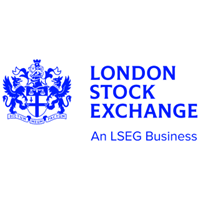-
BackWhat we doNumis is an ambitious, dynamic and innovative investment bank, driven to excel across all aspects of its delivery.Investment Banking
-
BackLatest newsRead the latest news about our business, our people and our work, find out about our next events and conferences.News
-
BackWho we areOur collaborative environment and distinctive way of excelling , is nothing without our great people.
-
BackOur board
INN Conversation - Mica Ross, Head of HR
The Inclusive Numis Network (INN) is an employee-led, board-sponsored initiative focused on building a diverse and inclusive workplace. It focuses on professional networking, community support, career development and charitable causes and is vital to our businesses succeeding in its ambitions.

It is our aspiration that launching an INN Conversation Series gives a chance for our employees, clients, stakeholders, and anyone who wants to know a bit more about our business, to understand the people that make Numis the place it is today.
And where better to start to understand our people than by speaking with our ‘head of people’, Mica Ross, who is passionate about inclusivity.
So, Mica – why HR?
I studied international relations way back when. And if I’m honest I always thought I wanted to work within the political sphere, as a civil servant or pursuing a career in the Swedish Foreign Office. But when I got the opportunity to go to university in London, I realised that working in the private sector could be a very powerful way of delivering change – which was always my ambition. As I entered the working world, I figured out that as a people professional, I would be able to have a real shot at that.So, driving change is important to you?
Absolutely. I think the private sector has a huge role to play in progressing societal changes and creating meaningful change. Thinking about it as an employer, there so much to do – especially around diversity, equity and inclusion. The agenda is moving forward, in part because of the regulatory landscape and external pressures. But in my view real and long-term change needs to come from within; and if we deliver that type of change within our organisation, there is also a positive impact on society more broadly.Elaborate more on that point, what do you mean ‘within’?
In political science it is often said that one cannot impose democracy. I think you can apply the same concept to delivering sustainable change of any kind within a company. Obviously, regulations and governance is key, but without internal demand or desire for change, combined with leadership that is willing and able to act, it won’t work.And do you think investment banking has that desire for change?
I know it does. One of the reasons I pursued a career in the city is because I recognised it’s where some of the smartest, most inquisitive people I met worked, and I figured that if I can influence people who have a seat at a table in those kinds of organisations, that can be impactful.But is the industry delivering change, is it improving?
Frankly, I didn't think so for some time, and it felt like an uphill battle. But I think the global financial crisis made people think much more about how they hire, assess, and retain talent in a more responsible way and how they create a bit more support and structure for their people in the long-term so that they, and the business, is set up to succeed. To me that was encouraging to see and an important step as I firmly believe that our industry’s main asset is its intellectual capital – our people.Over the past few years, I think we have moved into a new phase. More and more, the industry is genuinely buying into the idea, (well, the, proven fact), that diverse and inclusive teams generate better ideas and deliver better results, both in terms of revenue generation and risk management. And organisations are now much clearer that unless we work with our people, making sure that they're engaged and that you know how to create the best possible working environment for them, your business will note be operating at its full potential.
But the pace of change is slow. Now is the time to build on this sentiment and really push for and create meaningful change.
How do you do propose to do that then?
I tend to talk about this a lot, but a better working environment is key. Internally, we need to ensure there is psychological safety, which is a bit of a buzzword, but is very true. Essentially it means we need to create a safe space for people to be heard and try ideas without repercussions if they fail, or don’t achieve the desired result. And making sure that where you work is an open forum with less hierarchy but still with leadership that invites people to participate without being fearful of doing so, irrelevant of their background, upbringing, faith, gender, sexuality orientation and so on.But how does an organisation do that without ‘forcing’ the issue?
I think that’s a good question because nothing should be forced. We can’t deliver change through positive discrimination in my view. Personally, I think it's about creating a framework where everyone is welcome and the best idea wins. And to do that you first must be willing to admit you might not be getting it right as an organisation, and that there are things you don’t know, which is why listening – for example via surveys and conversations amongst your team - is so important. There is sometimes a feeling that people are afraid to ask questions, but I think we should move away from that and encourage questions. Learning is everything. We need to shift the agenda or tone away from punishment if you get something wrong, away from ‘checking your unconscious bias’s and more towards positive inclusion and positive thinking, i.e. what more can you do to improve equity or foster a better working environment.You talk of diversity, do you really think the industry is improving on that front, is it moving in the right direction?
Yes, I do. But slowly. And I think it is because we aren’t doing enough to change the perception. I would say that if we look at the workplace, it is more inclusive than ever, but still isn’t anywhere near as diverse as it should be. And the reason for that is people are self-selecting away from joining our industry, because it is perceived not to be inclusive. This is something we must change. We need to look at how we build candidate pools, where we recruit from, how we utilise apprentice schemes for example, and actively manage candidate sourcing and the external projection of the industry to make sure we don’t miss out on diverse talent. Better ideas, better results, and being representative of the world around us means we will be able to drive change and grow the business as well. It’s vital.You talk about hiring and attracting talent, how important is that to improving diversity going forward?
It’s everything. But it isn’t about setting a target of a certain number of individuals from background a vs. background b. It is about finding and nurturing that talent to be the best they can be so they can be the role models for the next generation; then change becomes self-reinforcing and sustainableAnd what at Numis do you think is helping to deliver the change you want to see?
I think the evolution of the Inclusive Numis Network is really exciting. Perhaps the most exciting element about it is that when we asked a variety of individuals if they think the Network is something needed and in demand – nearly all of them said yes. That shows the desire for change within which as I said earlier is fundamental to making a difference. The work we have done internally in terms of practically supporting working parents and opening up conversations around mental health is also really important. We also launched our ESG framework towards the end of 2021. At its heart is a company-wide vision to provide innovative solutions to our clients based on a shared ambition to manage our environmental impacts, drive social value in the wider community and create a fair working environment for our employees. To put this vision at the core of the business is exciting and I’m excited to see the difference we can make as a result.
Thanks Mica!
If you’re interested in being involved with INN, or would like to take part in an INN Conversation on a topic of your choice, please contact INN Committee@numis.com





